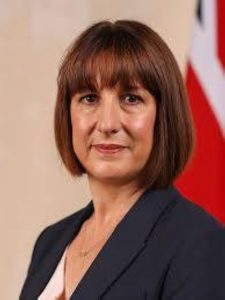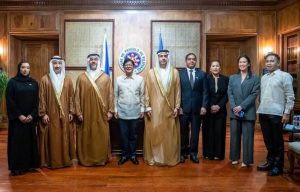On the International Day of Charity, the Kingdom of Bahrain stands out as a leading model in promoting values of solidarity and social cohesion, supported by figures and achievements reflecting its humanitarian presence locally and internationally. The kingdom hosts more than 675 civil society organizations and 93 active charity centers distributed across various governorates, including 27 state-owned properties allocated to support civil work.
Between 2009 and 2025, over 71,576 people benefited from the assistance of the Bahrain Charity Association, which also sponsored around 271,598 orphans and widows and implemented more than 58 relief and development projects inside and outside Bahrain. In 2022 alone, 50 regional associations supported more than 6,075 Bahraini families with food, financial, and care assistance.
These figures reflect a deeply rooted royal approach, embodied by His Majesty the King’s directive to redirect national celebration budgets to charities and charitable funds, reinforcing the humanitarian dimension in state policies. Additionally, His Highness Sheikh Nasser bin Hamad Al Khalifa, the King’s Representative for Humanitarian Work and Youth Affairs, has enhanced Bahrain’s international standing through his leadership of the Royal Humanitarian Foundation, achieving significant accomplishments in social solidarity and cohesion.
The United Nations emphasizes that eradicating poverty requires strong partnerships between governments, civil society, and charitable organizations. Bahrain today offers an integrated experience showing that humanitarian giving is not a seasonal initiative but an investment in the future and a message of solidarity contributing to building stronger and more inclusive societies.
Every year on September 5, the world observes the International Day of Charity, established by the UN General Assembly in 2012 to commemorate Mother Teresa, a symbol of humanitarian giving and Nobel Peace Prize laureate. This occasion reaffirms the vital role of charity work in enhancing global solidarity and addressing social, economic, and humanitarian challenges, from poverty and hunger to natural disasters and health crises.
Charity in Bahrain is a driving force for social change and comprehensive development, characterized by new features such as technology-driven giving, youth leadership, justice and inclusion, ethical and accountable giving, and linking poverty with climate solutions.
Charity work in Bahrain is a crucial pillar of national development, helping to fill social gaps unmet by public services, supporting community security by sponsoring thousands of orphans and needy families, empowering vulnerable groups through education and healthcare, and promoting humanitarian values based on solidarity and compassion among citizens and residents.
Bahrain hosts over 675 civil society organizations implementing distinguished developmental and social programs in partnership with the public and private sectors. According to data from the Ministry of Social Development in February, Bahrain has 93 active charity centers distributed across governorates: 34 in the capital, 11 in Muharraq, 43 in the Northern Governorate, and 5 in the Southern Governorate. Some benefit from 27 state-owned properties, reflecting ongoing government support for the civil and charitable sector.
Regarding services, the Bahrain Charity Association reported that more than 71,576 people benefited from humanitarian aid between 2009 and 2025. Since its establishment, it has sponsored 271,598 orphans and widows and implemented over 58 relief and development projects inside and outside Bahrain.
In 2022, a social study showed that 50 regional charities provided aid to 6,075 Bahraini families, including widows, divorcees, orphans, and families without breadwinners. Support included food distribution, purchase coupons, electrical appliances, and monthly financial assistance to ensure family stability.
Analysts say charity is not merely voluntary or humanitarian acts but an expression of human solidarity across borders. According to the OECD (2021), charity unites people of diverse backgrounds and supports communities in addressing social and economic disparities.
Today, charity extends beyond emergency relief to support healthcare and education systems, preserve cultural heritage, protect vulnerable groups, and form part of an integrated sustainable development system alongside governments and international organizations. The UN 2030 Sustainable Development Agenda stresses that eradicating poverty in all its dimensions requires strong partnerships among governments, civil society, the business sector, and charitable organizations.
This year’s International Day of Charity confirms that giving is not just individual or seasonal initiatives but an integrated system contributing to sustainable development, enhancing human solidarity, and building a fairer and more equitable world. Bahrain stands out as a unique case that has integrated charity into its development strategies, relying on leadership vision, official and civil institutions, and volunteer initiatives.
Bahrain’s experience sends a clear message that humanitarian giving is an investment in the future and that social solidarity is the best way to build stronger nations and more inclusive societies.













Recommended for you
Exhibition City Completes About 80% of Preparations for the Damascus International Fair Launch
Talib Al-Rifai Chronicles Kuwaiti Art Heritage in "Doukhi.. Tasaseem Al-Saba"
Unified Admission Applications Start Tuesday with 640 Students to be Accepted in Medicine
Egypt Post: We Have Over 10 Million Customers in Savings Accounts and Offer Daily, Monthly, and Annual Returns
His Highness Sheikh Isa bin Salman bin Hamad Al Khalifa Receives the United States Ambassador to the Kingdom of Bahrain
Al-Jaghbeer: The Industrial Sector Leads Economic Growth